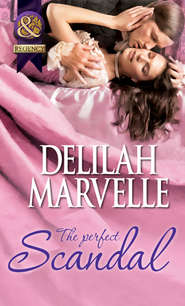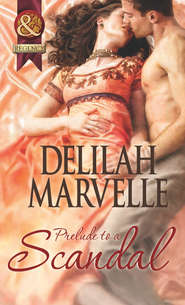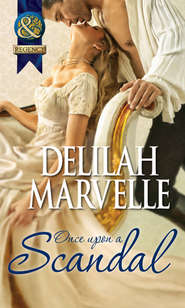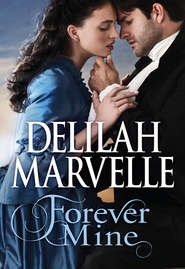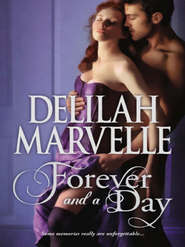По всем вопросам обращайтесь на: info@litportal.ru
(©) 2003-2025.
✖
Forever a Lady
Автор
Год написания книги
2019
Настройки чтения
Размер шрифта
Высота строк
Поля
CHAPTER SEVENTEEN (#litres_trial_promo)
CHAPTER EIGHTEEN (#litres_trial_promo)
CHAPTER NINETEEN (#litres_trial_promo)
CHAPTER TWENTY (#litres_trial_promo)
CHAPTER TWENTY-ONE (#litres_trial_promo)
CHAPTER TWENTY-TWO (#litres_trial_promo)
CHAPTER TWENTY-THREE (#litres_trial_promo)
CHAPTER TWENTY-FOUR (#litres_trial_promo)
CHAPTER TWENTY-FIVE (#litres_trial_promo)
CHAPTER TWENTY-SIX (#litres_trial_promo)
CHAPTER TWENTY-SEVEN (#litres_trial_promo)
EPILOGUE (#litres_trial_promo)
AUTHOR’S NOTE (#litres_trial_promo)
PROLOGUE
Survival, gentlemen. Life is all about survival.
—The Truth Teller, a New York Newspaper for Gentlemen
June 1822
New York City—Orange Street
WHEN IT HAD BEEN UNCOVERED that their bookkeeper and longtime friend, Mr. Richard Rawson, was actually a money-pilfering son of a mudsill, Matthew and his father had sent the authorities straight to Rawson’s house to make an arrest. Rawson, realizing he was about to hang, saddled a horse and galloped off, leaving behind a clutter of furniture and foppish clothing worth a sliver of nothing. The rest of the money taken from coffers of the Milton newspaper—two thousand dollars of it—Rawson had long since squandered on gambling and countless whores, whose extravagant tastes included every imaginable trinket known to please female humanity.
When armed marshals had finally cornered that bastard just off Broadway and Bowling Green Park, it was there, before all of New York City, Rawson’s own horse heroically intervened by rearing up on its hind legs. Rawson’s neck snapped from the toss and the man was pronounced dead, right along with the once-thriving Milton newspaper, The Truth Teller, which had sunk into bankruptcy.
If only such men could die twice. Perhaps then Matthew Joseph Milton would have felt some sense of justice knowing that he and his father, who both had once owned said newspaper and been worth a good three hundred a year, were now worth only eight dollars and forty-two cents.
Lingering beside his father on the street curb of their new neighborhood, Matthew tightened his fingers on the rough wool of the sacks weighing each shoulder. He stared up at that looming unpainted building, the acrid stench of piss lacing the heat-ridden air.
Could the good Lord truly be this cruel?
Oh, yes. Yes, He could be, and yes, He was.
The sweltering heat of the afternoon sun pierced Matthew’s furrowed brow, beading lines of moisture down his temples. Shirtless men lounged with dirt-crusted bare feet on the sills of open windows, some guzzling bottles of old Irish whiskey, while others leisurely smoked half-cut cigars. It was as if these bingo boys all thought they were on a blanket on the grassy plains of a lake. One of the bearded men in the window directly above him menacingly held his gaze, leaned over and loudly spat. A large pool of thick brown saliva slapped the pavement half a foot away.
The man had been aiming for him.
Matthew glanced toward his father, who still held a crate of newspapers from the print shop. “Was, uh, this the best your associate could do for us? I would think a much bigger discount would have been in order.”
His father, Raymond Charles Milton, slowly shook his head, those silvering strands of chestnut-colored hair swaying as he, too, surveyed the building. It was obvious his father was no more prepared to enter the building than he was.
One of them had to be optimistic. Matthew nudged the man with whatever assurance he could muster. “It could be worse. We could be sitting in debtors’ prison.”
His father gave him a withering look.
Matthew paused as a boy of about six or seven, whose brown matted hair hung into his eyes, wandered past in billowing clothing and large boots. The boy shuffle-shuffle-shuffled in an effort to keep those boots on his small feet.
Upon seeing Matthew, the child jerked to a halt, that oversized linen shirt that came down to his trouser-clad knees swaying against his lanky frame. The boy lingered before them, those large brown eyes quietly scanning Matthew’s cravat and embroidered vest as if assessing their worth.
One day, Matthew knew he’d have a house full of children just like this one. One day. Though he certainly hoped that by that day, he could afford to dress his children a bit better than this child was dressed. Matthew couldn’t help but smile. “And how are you today, sir? Good?”
The boy’s eyes widened. He edged back and back and then sprinted past and across the street, stumbling several times in those oversized boots.
His father bumped Matthew with the crate. “What did you do?”
“Nothing. All I did was ask how he was. He mustn’t be used to people being...friendly.”
They fell into silence.
The clopping and clacking of carts and the occasional profanity and shouts of men from down the street reminded them that they weren’t on Barclay Street anymore. No more vast treed square, no more pristine lacquered carriages or elegant men and women of the merchant classes. Only this.
“I should have never entrusted Rawson,” his father confided in a strained tone. “Because of me, you have nothing. Not even a prospect of marriage. If it weren’t for me, you would have been married to Miss Drake by now.”
Matthew whipped both sacks to the pavement at hearing that woman’s name. “I can do with the poverty, Da. I can do with the stench and everything that goes with it, but what I can’t do with is listening to you blather as if this was your goddamn fault. To hell with Miss bloody Drake. If she had loved me, as I had stupidly loved her, she would have followed me here. Like I had asked her to.”
His father paused and eyed him. “Would you have followed yourself here?”
Matthew hissed out a breath, trying not to let it hurt knowing he had meant so little to her. “I’m only twenty, Da. I have my whole life ahead of me. One day, I’ll find myself a good woman capable of respecting me, no matter my financial worth.”
His father dug into his vest pocket, balancing the crate on his hip. “God bless you, Matthew, for always making the best out of even the worst.” He tossed him a quarter. “Buy us something to eat. And try to ration it. We have yet to find jobs. I’ll go settle us in. Hand up those sacks, will you?”
Matthew snatched both up from the pavement and stacked them atop the crate. His father tucked the upper wool sack beneath his chin and strode through the open doorway, angling himself up the narrow stairwell.
Puffing out a breath, Matthew swung toward the dirt road, scanning the wide street of squat buildings plastered with crooked wooden plaques. Unevenly stacked crates of browning fruit and half-rotten vegetables sat unattended alongside open doors. A floating swarm of insects hovered in unison over one crate of food before darting to the next. It was as if the insects themselves were questioning the quality at hand.
He already missed their cook.
A strangled sob made his gaze jerk toward a commotion just across the street. A russet-haired gent in a frayed shirt and patched trousers held a boy roughly by the hair, shaking him.
Matthew drew in a breath. It was the boy with the oversized boots.
As a coal cart trudged past, the unshaven giant leaned down, shaking the boy by the hair again and again, saying something. The boy sobbed with each violent agitation, stumbling in an effort to remain upright.
Matthew fisted the quarter his father had given him. He’d never formally boxed, but he sure as hell wasn’t about to stand by and watch this. Tucking the quarter into his inner vest pocket, Matthew dodged past women carrying woven baskets and dashed across the unpaved street toward them.







